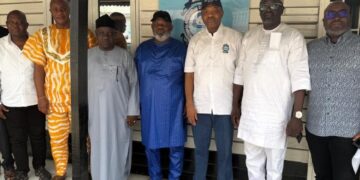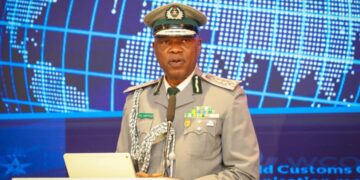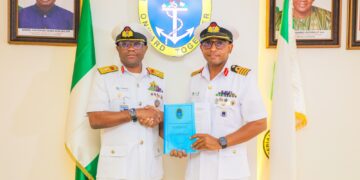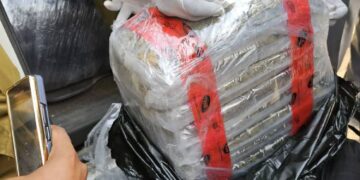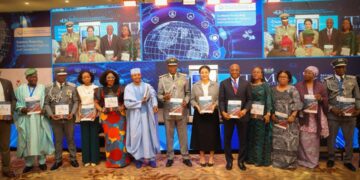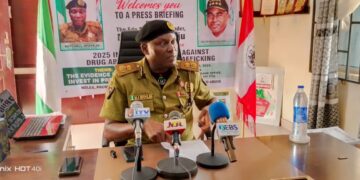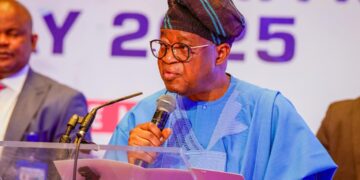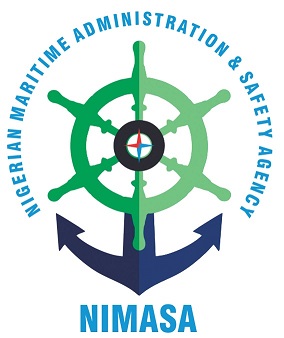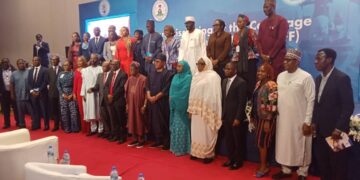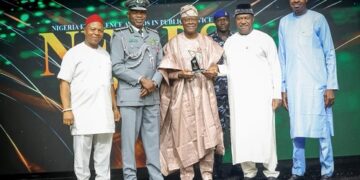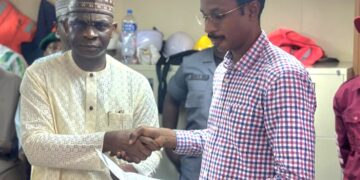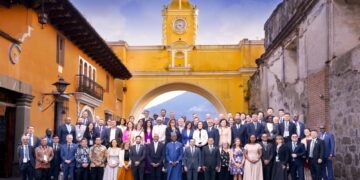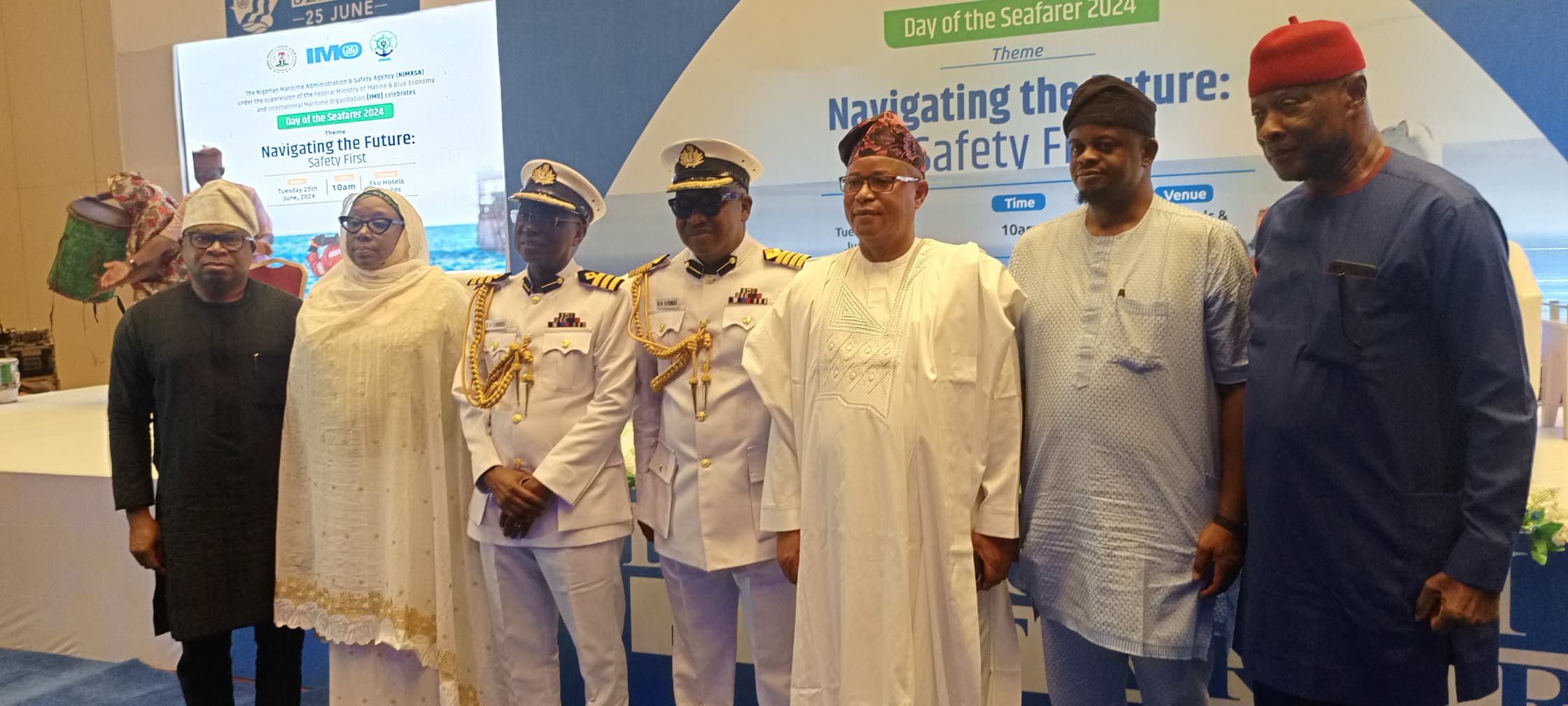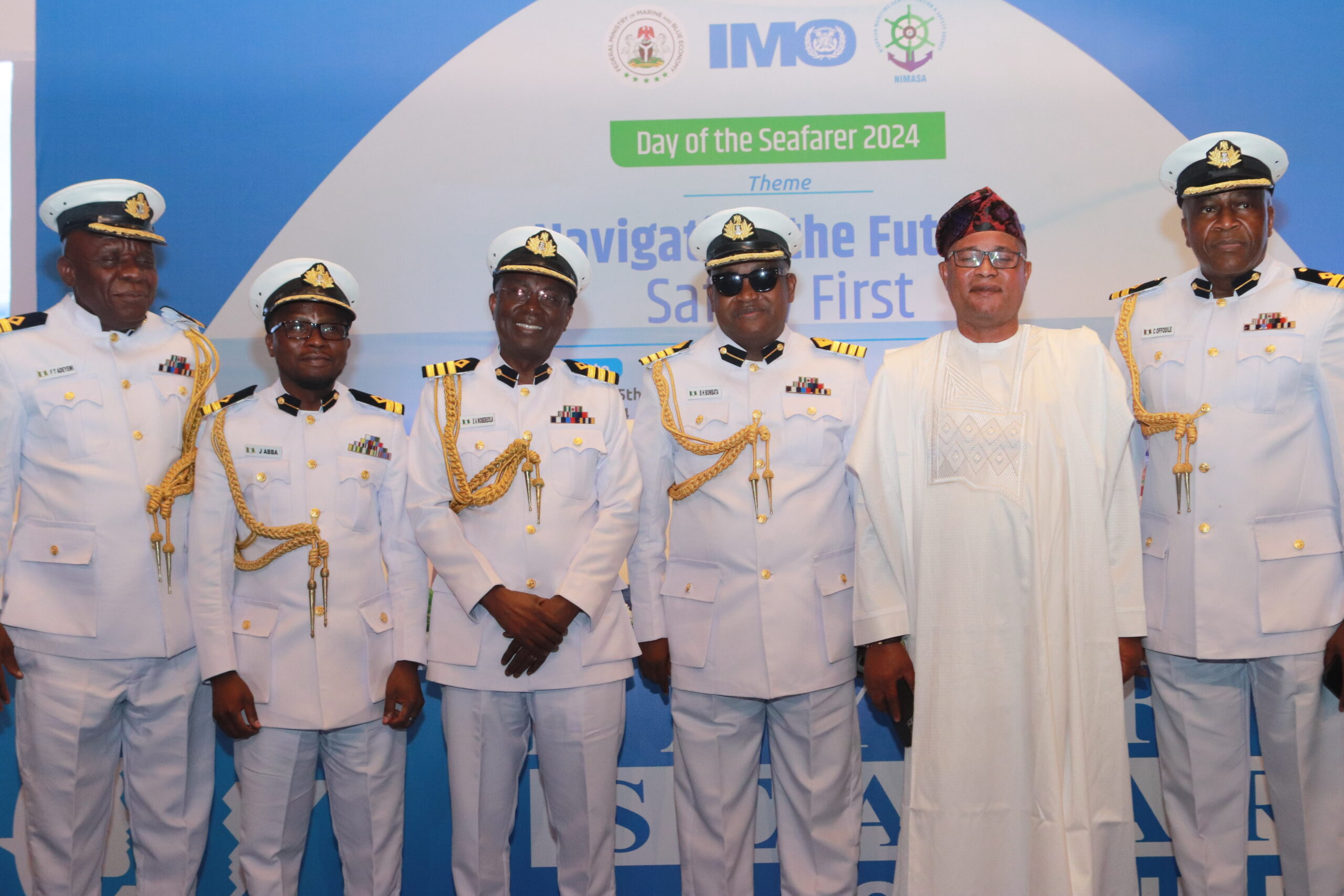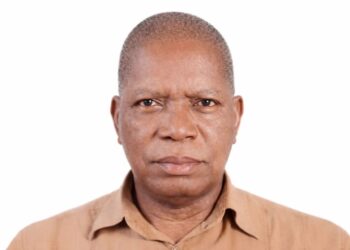The Federal Government has pledged to domesticate all International Labour Organization (ILO) instruments already ratified by Nigeria.
The Minister for Marine and Blue Economy, Adegboyega Oyetola and the Director General of Nigerian Maritime Administration and Safety Agency (NIMASA), Dr. Dayo Mobereola, disclosed this on Tuesday in Lagos during the Day of the Seafarer 2024 celebration.
Speaking at the event, the Blue Economy Minister, who was represented by the Ministry’s Director of Maritime Safety and Security, Mr. Babatunde Bombata, emphasized the nation’s commitment to seafarers’ welfare through standardized remuneration, safe environment and proper training.
He said that seafarers’ training would continue to be prioritized just as attention would be given to addressing needs areas of seafarers and shipping in the country.
In his speak, Dr. Mobereola, described IMO’s 2024 theme: “Navigating the Future: Safety First” as apt, while he assured that the agency would strengthen its legal framework by domesticating all Maritime- Labour- related ILO Conventions ratified by Nigeria.
These conventions include the Maritime Labour Conventions (MLC) 2006 as amended, the Seafarers Identity Document (SID) Convention as amended, and the Dock Work Convention.
“We recognize the humongous challenges seafarers face, including war zones, pirates, and exposure to health risks. We also acknowledge that some basic rights, such as proper insurance and compensation, are not always guaranteed. This is a call to action for all stakeholders, government, ship-owners, and ourselves at NIMASA – to address these issues and prioritize seafarer welfare.
“In the area of employment of Seafarers, the Agency through the introduction of the new Cabotage Compliance Strategy on Manning has ensured that all foreign Seafarer Ratings and some category of officers onboard Cabotage vessels are immediately replaced with qualified Nigerian seafarers.
“The third phase of the Nigerian Seafarers’ Development program aims to graduate 435 officers. Many trainees are currently undergoing mandatory sea-time training onboard ocean going vessels. The challenge lies in securing placements for these qualified seafarers, but we are working to resolve this issue,” the NIMASA boss said.
In his remarks, the President General of Maritime Workers Union of Nigeria (MWUN), Comrade Adewale Adeyanju, revealed that over 2000 Nigerian seafarers were yet to be paid their pensions.
He described the nation’s treatment of the affected aged seafarers as unpleasant and a sad tale to reflect on as the world celebrated seafarers.
The MWUN President General also admonished the Ministry of Marine and Blue Economy and NIMASA to work towards improving the certification for seafarers in the country, as he noted that the Certificate of Competence (CoC) acquired in the nation is not valued by other nations.
Adeyanju, who is also the Deputy President of Nigeria Labour Congress (NLC), urged the government to provide fiscal and tax incentives to support the growth of ship acquisition in a bid to provide opportunities for teeming youths via seafaring.
On his part, the Chairman, Senate Committee on Marine Transport, Senator Wasiu Eshilokun, assured that the Senate would collaborate with the Blue Economy Minister, NIMASA and other maritime stakeholders to enact and review laws to improve the welfare and wellbeing of seafarers.
Eshilokun equally described the role of seafarers as unique and essential, stressing that although IMO’s decision to celebrate seafarers is worthwhile, the occasion should also be an opportunity to outline and address issues affecting the profession in Nigeria.
For the President of Ship Owners Association of Nigeria (SOAN), Mr. Sonny Eja, one way to unlock the opportunities for seafaring is to provide an enabling fiscal and regulatory environment for indigenous shipping capacity to be enhanced.
“The disbursement of Cabotage Vessel Finance Fund (CVFF), lower or zero Customs duty rates for ships and spare parts and tax holidays for operators are some approaches that could spark a significant increase in Nigerian vessels, thereby leading to more seafaring opportunities.
“Ship owners can play a role in the training of seafarers; but this burden also falls on the IMO, Flag States, operators and training academies. Thorough and timely education of seafarers would impart the skills needed to operate ships competently in the digital age, and familiarize them with alternative energy technologies, including fuel-specific firefighting techniques,” Eja said.
The SOAN president expressed confidence that Nigeria could become the world’s major supplier of seafarers if she took advantage of the global shortage of skilled seafarers by putting in place workable policies, the right training as well as optimizing the shipping industry.



